The Our Soil team held a virtual information session tonight to provide more details and answer questions about the Soil Justice Fellowship at NATURE Lab this August. You can view a recording here by using this passcode: 6N.gLq=K
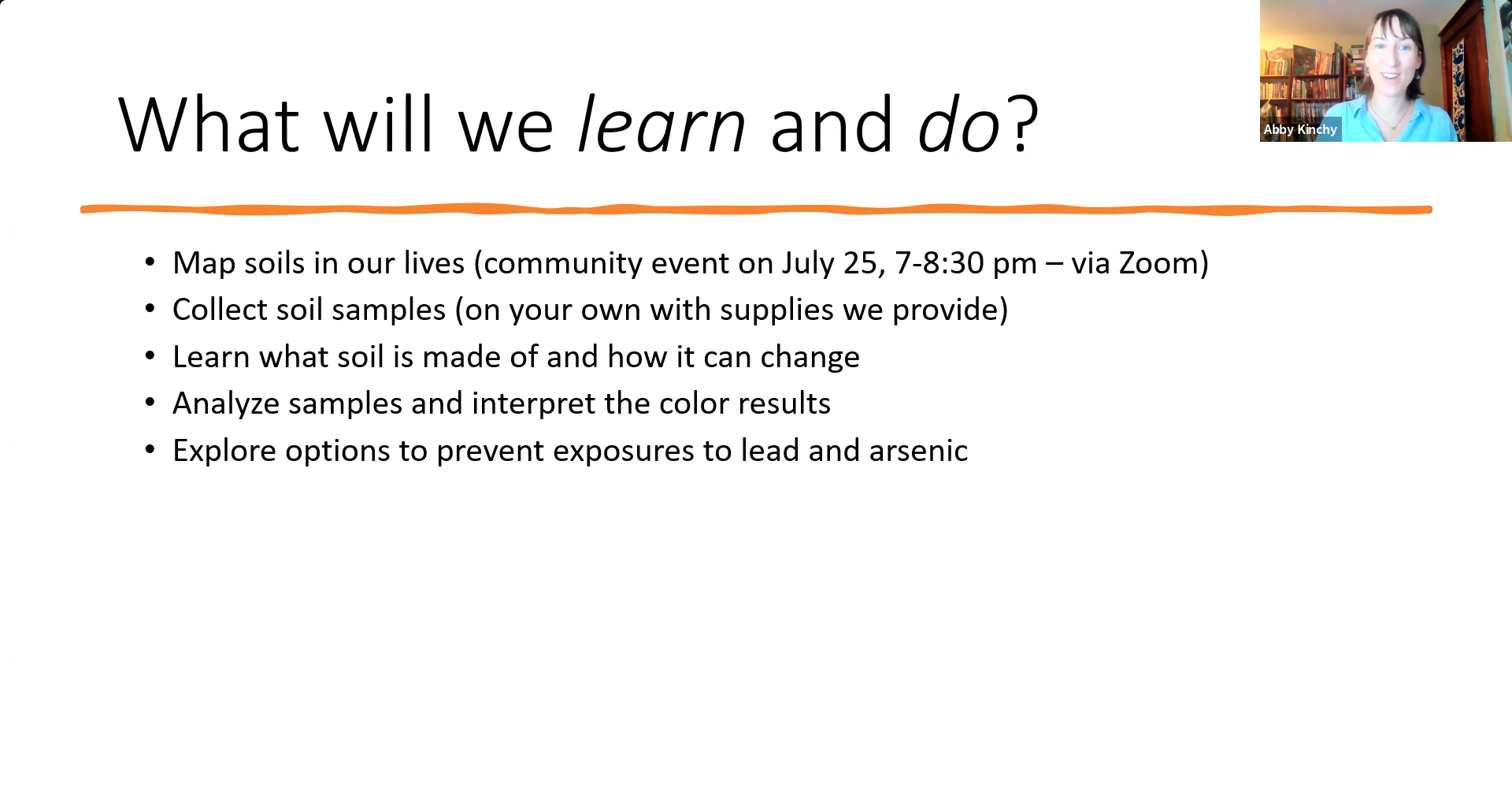
Do-it-together screening for soil pollution
The Our Soil team held a virtual information session tonight to provide more details and answer questions about the Soil Justice Fellowship at NATURE Lab this August. You can view a recording here by using this passcode: 6N.gLq=K

Sebastián was interviewed by McKenna Conners of The Sanctuary for Independent Media on WOOC 105.3 about the Our Soil project. Sebastián discussed his role in the Our Soil project and the importance of healthy soil for community health. You can listen to the radio interview here.

Abby, Dan, and Sarah doorknocked on the blocks surrounding NATURE Lab to announce the Soil Justice Fellowship at NATURE Lab in August. We handed out over 100 “Soil in the City” comic books and informational brochures about the Fellowship. We spoke to many neighbors of the NATURE Lab about how soil can be a pathway of exposure to lead, and what measures we can take collectively to protect community health.
You can find the informational brochure in English here and in Spanish here.
You can find the comic book in English here and in Spanish here.
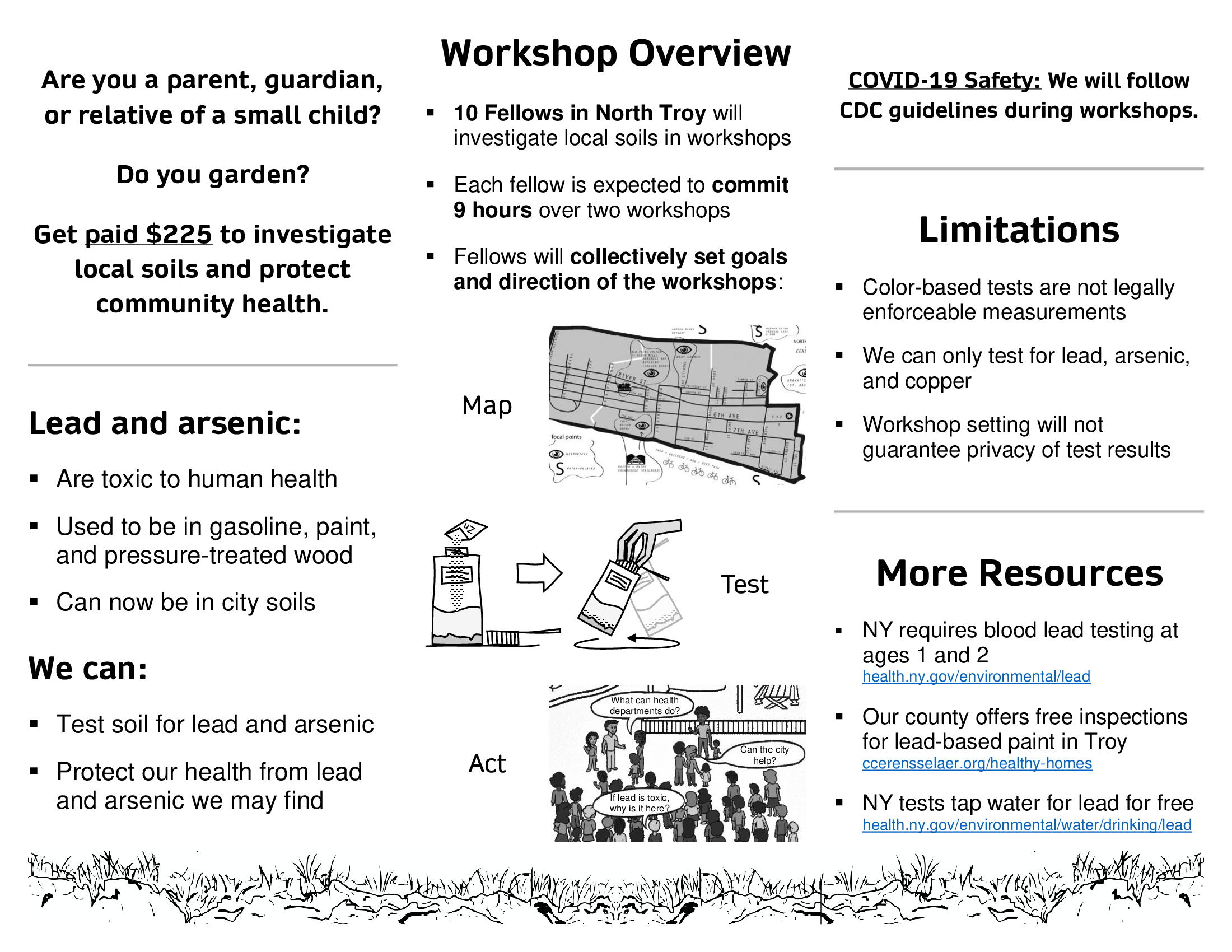
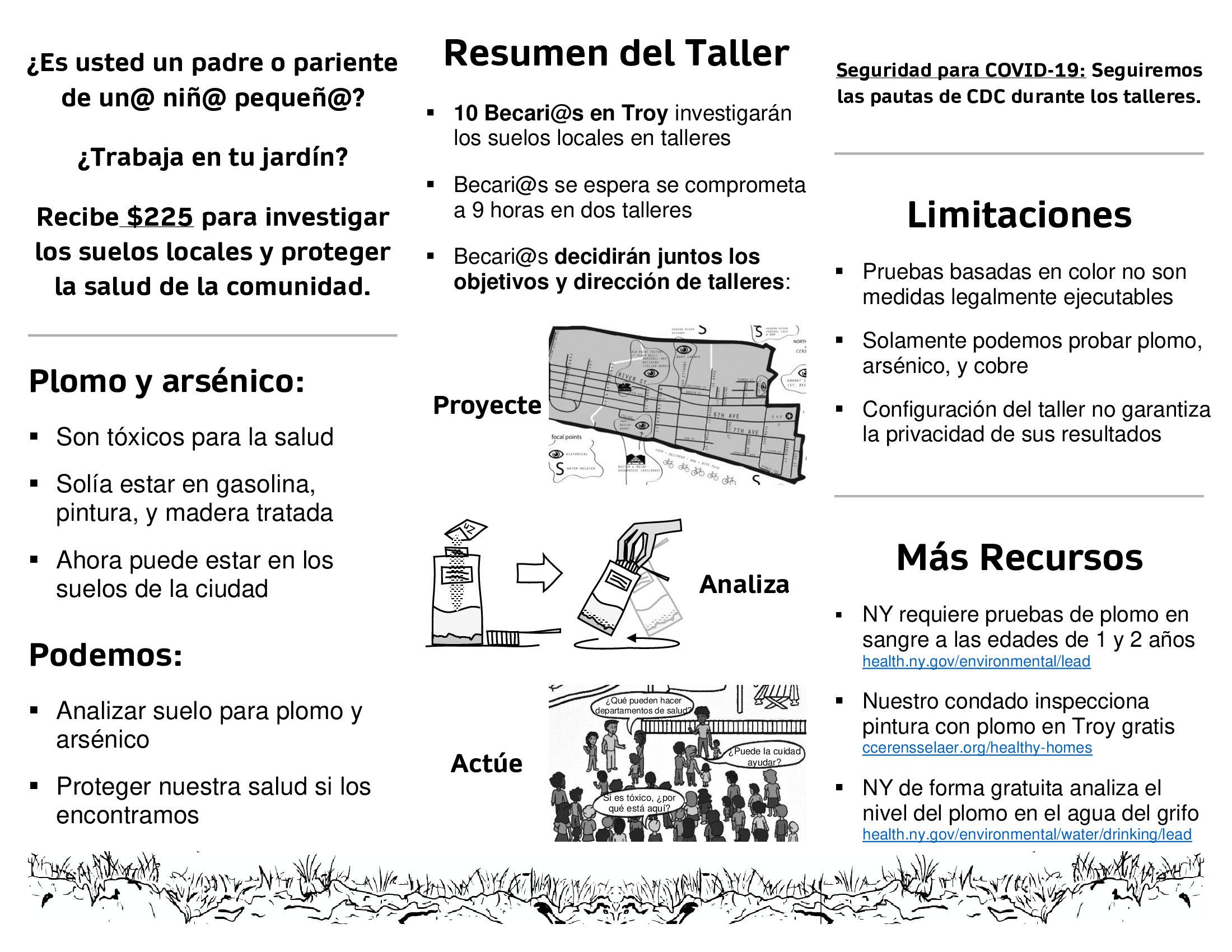
Abby, Dan, and Sarah posted flyers on telephone poles and in corner store windows throughout North Central to announce the Soil Justice Fellowship at NATURE Lab in August. We are hoping to train 10-15 Soil Justice Fellows in testing soil for lead and arsenic, beginning with soils in the places most important to the Fellows! Fellows will need to commit nine hours (1 hour sampling + 2×4 hour workshops) to complete the training, and will be paid $225 for their time.
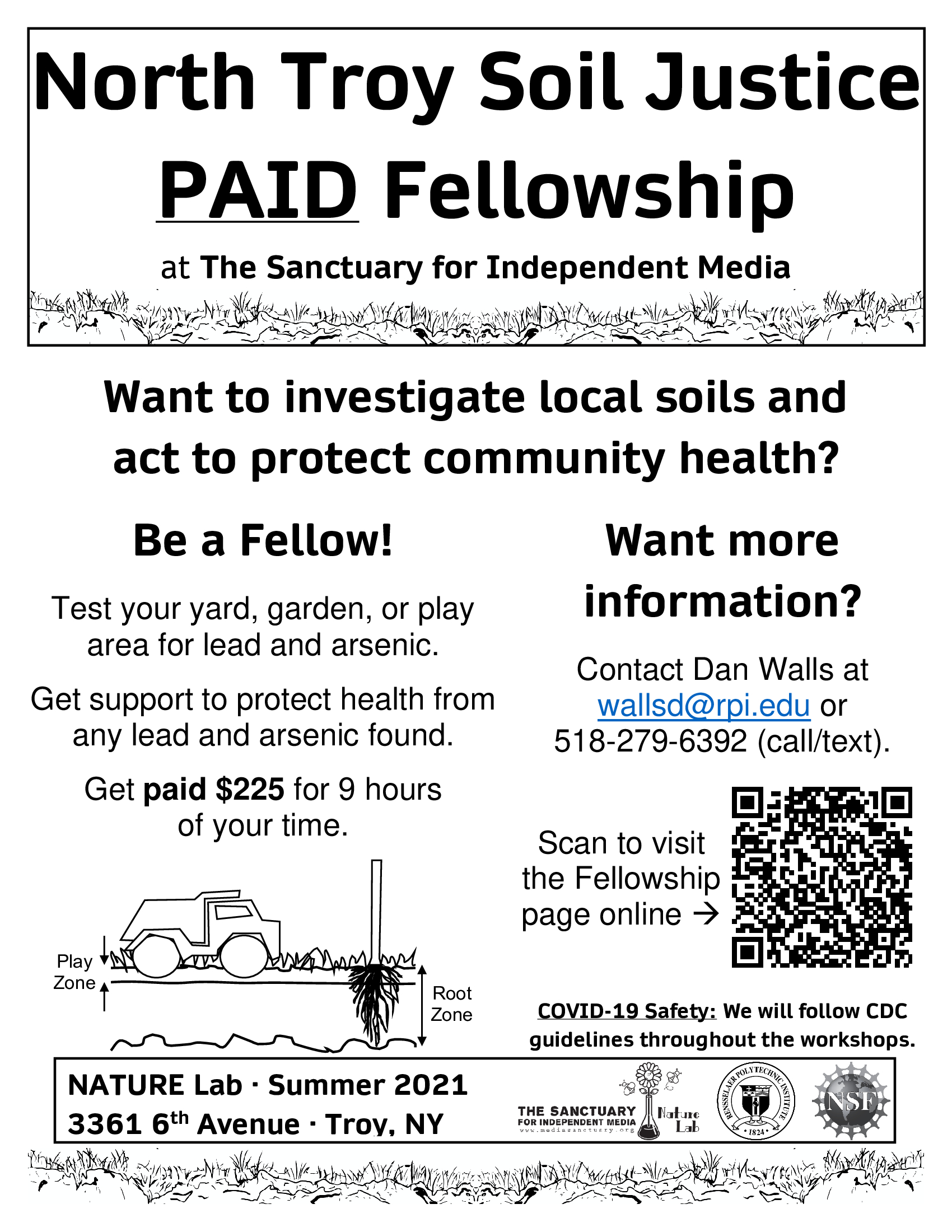
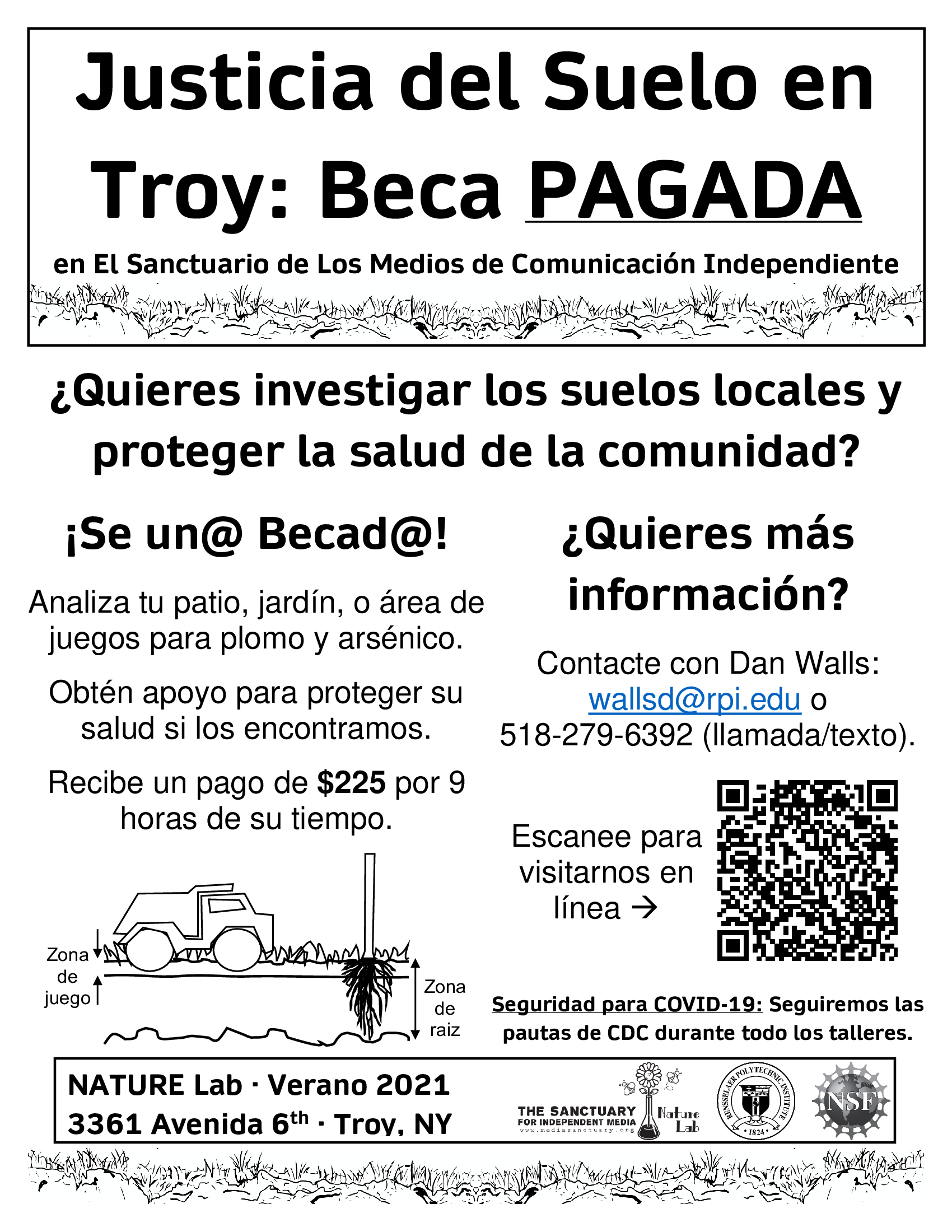
Abby was interviewed by Sina Hickey of The Sanctuary for Independent Media on WOOC 105.3 about the Our Soil project. Abby announced that the Our Soil project and NATURE Lab are looking for Soil Justice Fellows who would like to learn, think, and act collectively about local urban soils through a series of collaborative workshops in August 2021. You can listen to the radio interview here.

The NSF grant will support research of soil lead in the US, Chile, UK, and Australia, four regions with distinctive roles in the lead industry. The main goal is to understand how people in each area create knowledge about soil lead, develop and promote methods to reduce exposures, and change the social and economic circumstances in which lead exposures occur. By “following the chemical” across four areas, from lead mines to the soils of urban neighborhoods, there is potential to affect environmental politics and policy, offering new ways to conceptualize the global problem of lead residues, while illuminating possible solutions that are emerging in particular locales.
Check out the NSF award page for the project and the RPI press release!
© 2025 Our Soil
Theme by Anders Noren — Up ↑